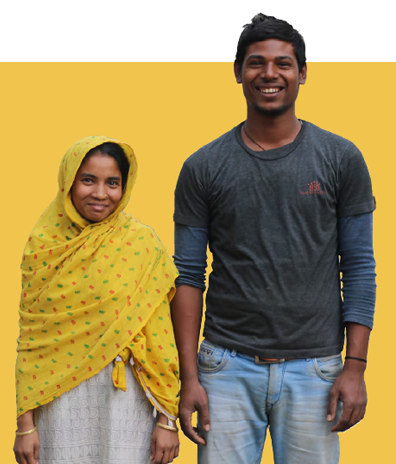Uttar Pradesh and Madhya Pradesh Officially Endorse Nine of TCI’s Proven Approaches for All Cities
TCIHC works with the Government of India (GoI) in both states (and Odisha) to implement the following approaches, which were proven effective under the Urban Health Initiative in India (2009 – 2015) and have been adapted for inclusion in TCI University (TCI-U).
• Mapping and Listing Urban Slums
• Convergence
• Fixed Day Static Services/Family Planning Days
• Strengthening Urban Accredited Social Health Activists (ASHAs)
• Strengthening Provider Capacity
• Using Data Effectively
• Private Sector Engagement
• Planning and Budgeting: Program Implementation Plan
• Engaging Mahila Arogya Samiti (MAS)
In UP, these approaches have so far resulted in:
• 1,310 slum clusters identified resulting in 1.8 million slum residents being linked to health and family planning services in 20 cities.
• 363 Urban Primary Health Centers (UPHCs) organizing weekly fixed-day static services (family planning days) and 329 UPHCs providing intrauterine contraceptive device (IUCD) services for the first time.
• 81% (294) of those UPHCs forming quality improvement teams and assessing service gaps on regular basis.
• District quality assurance committee (DQAC) members visiting UPHCs to assess facility readiness for family planning services for the first time.
• Increased uptake of family planning services at UPHCs and family planning referrals from urban health and nutrition days (UHNDs) and outreach camps (ORCs), as a result of coaching and mentoring of urban ASHAs.
• Increased uptake of non-scalpel vasectomy (NSV) as a result of TCIHC’s male participation approach, which resulted in 82 men receiving NSV in just 22 days across 10 cities.
On Feb. 27, 2019, the UP government and the GoI’s National Health Mission (NHM) along with TCIHC – led by Population Services International (PSI) – organized a one-day “State Conclave on Urban Family Planning” for cross-sharing and learning related to challenges and solutions for improving access, choice and quality of family planning services among the urban poor. The event was attended by 230 participants comprising representatives from the Government of India (GoI) and Uttar Pradesh, along with other stakeholders.
In partnership with TCIHC, NHM is scaling up proven approaches to increase access to and demand for family planning to over 20 million people across 20 large UP cities, covering 70% of the state’s total slum population.
At the event, Prof. Rita Bahuguna Joshi, the Honorable Minister of Family Welfare, Mother and Child Welfare for UP; Sri Pankaj Kumar, Indian Administrative Service, Mission Director NHM & Secretary Health in UP; and other dignitaries’ unveiled TCIHC’s toolkit featuring the nine high-impact approaches. Joshi shared that the high-impact approaches are quick, easy-to-adapt strategies that can improve accessibility and use of family planning services. She also said implementing these approaches can help reduce the state’s fertility rate, which is much higher than national average. She urged family planning programs across the state to adapt the tools in their respective programs.
The Government of UP’s endorsement means that the approaches and tools are now approved for use by all government health officials in UP, which will diffuse TCIHC’s impact beyond its 20 cities to an additional 55 cities in UP. Check out the summary report to learn more about the conclave proceedings.
A similar event just held in Madhya Pradesh, India, on May 2, 2019, resulted in the nine approaches – plus an additional one on establishing a referral mechanism – being endorsed by the MP government, thus extending the potential reach beyond the eight TCIHC-supported cities to an additional 39 cities.



